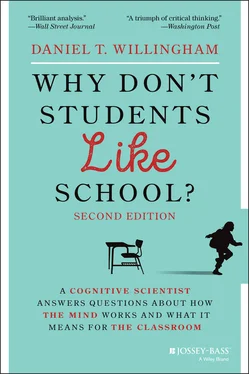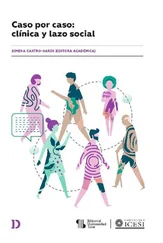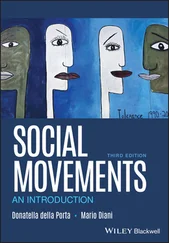1 Cover
2 Title Page DANIEL T. WILLINGHAM
3 Copyright
4 Dedication
5 Acknowledgments to the First Edition
6 Acknowledgments to the Second Edition
7 The Author
8 Introduction Note
9 1 Why Don't Students Like School? The Mind Is Not Designed for Thinking People Are Naturally Curious, But Curiosity Is Fragile How Thinking Works Summary Implications for the Classroom Notes Further Reading Discussion Questions Notes
10 2 How Can I Teach Students the Skills They Need When Standardized Tests Require Only Facts? Knowledge Is Essential to Reading Comprehension Background Knowledge Is Necessary for Cognitive Skills Factual Knowledge Improves Your Memory Summary Implications for the Classroom Notes Further Reading Discussion Questions Notes
11 3 Why Do Students Remember Everything That's on Television and Forget Everything I Say? The Importance of Memory What Good Teachers Have in Common The Power of Stories Putting Story Structure to Work But What If There Is No Meaning? Summary Implications for the Classroom Notes Further Reading Discussion Questions Notes
12 4 Why Is It So Hard for Students to Understand Abstract Ideas? Understanding Is Disguised Remembering Why Is Knowledge Shallow? Why Doesn't Knowledge Transfer? Summary Implications for the Classroom Notes Further Reading Discussion Questions Notes
13 5 Is Drilling Worth It? Practice Enables Further Learning Practice Makes Memory Long Lasting Practice Improves Transfer Summary Implications for the Classroom Notes Further Reading Discussion Questions Notes
14 6 What's the Secret to Getting Students to Think Like Real Scientists, Mathematicians, and Historians? What Do Scientists, Mathematicians, and Other Experts Do? What Is in an Expert's Mental Toolbox? How Can We Get Students to Think Like Experts? Summary Implications for the Classroom Note Further Reading Discussion Questions Notes
15 7 How Should I Adjust My Teaching for Different Types of Learners? Styles and Abilities Cognitive Styles Visual, Auditory, and Kinesthetic Learners Abilities and Multiple Intelligences Summary Implications for the Classroom Notes Further Reading Discussion Questions Notes
16 8 How Can I Help Slow Learners? What Makes People Intelligent? How Beliefs About Intelligence Matter Summary Implications for the Classroom Notes Further Reading Discussion Questions Notes
17 9 How Can I Know Whether New Technology Will Improve Student Learning? This Changes Everything, 1.0: Your Brain on Tech This Changes Everything, 2.0: Your Classroom on Tech This Changes More Than I Expected Tech Changes the Ecosystem Why Are They So Frantic About Their Phones? Summary Implications for the Classroom Notes Further Reading Discussion Questions Notes
18 10 What About My Mind? Teaching as a Cognitive Skill The Importance of Deliberate Practice A Method for Getting and Giving Feedback Consciously Trying to Improve: Self-Management Summary Implications Notes Further Reading Discussion Questions Notes
19 Conclusion Note
20 Glossary
21 Index
22 End User License Agreement
1 Chapter 2 TABLE 2.1: A demonstration that, when it comes to knowledge, the rich get ric... TABLE 2.2: Quotations from great thinkers denigrating the importance of factu...
2 Chapter 3TABLE 3.1: The odds, out of 10 tosses, of tossing a successively greater numb...TABLE 3.2: Common mnemonic methods.
3 Chapter 7TABLE 7.1: Some of the many distinctions among cognitive styles that have bee...TABLE 7.2: Gardner's eight intelligences.
4 Chapter 8TABLE 8.1: This table shows different sibling relationships and the genetic a...TABLE 8.2: Percentage of 15-year-olds who took the OECD test who showed a gro...
5 ConclusionTABLE C.1: The principles of the mind discussed in this book, along with the ...
1 Chapter 1 FIGURE 1.1: Kanye West is one the most successful and respected songwriters ... FIGURE 1.2: Hollywood robots (left), like humans, can move in complex enviro... FIGURE 1.3: Your memory system operates so quickly and effortlessly that you... FIGURE 1.4: “Thinking outside the box” for a mundane task like selecting bre... FIGURE 1.5: Why are many people fascinated by problems like the one shown on... FIGURE 1.6: A difficult-to-understand figure that will bore most people unle... FIGURE 1.7: Just about the simplest model of the mind possible. FIGURE 1.8: The figure depicts a playing board with three pegs. There are th... FIGURE 1.9: A depiction of your mind when you're working on the puzzle shown... FIGURE 1.10: The tea-ceremony problem, depicted to show the analogy to the d...
2 Chapter 2 FIGURE 2.1: If someone said your daughter is dating a yegg, you'd certainly ... FIGURE 2.2: Our simple figure of the mind. FIGURE 2.3: The human mind is more like this astrolabe than like a calculato... FIGURE 2.4: Consider the difference in how you would describe a planned less... FIGURE 2.5: Results from a study of reading. As you would predict, the good ... FIGURE 2.6: Most people would not even notice that the word “it” is ambiguou... FIGURE 2.7: Each card has a letter on one side and a digit on the other. The... FIGURE 2.8: You are to imagine that you are a doorman in a bar. Each card re... FIGURE 2.9: A device used to time a chess match. The black hand on each cloc... FIGURE 2.10: Suppose you were at a friend's house and she asked you to make ... FIGURE 2.11: Judge Sharon Newcomb shown here inspecting a Miniature Pinscher...
3 Chapter 3FIGURE 3.1: A slightly modified version of our simple diagram of the mind....FIGURE 3.2: Subjects were shown 40 drawings of common objects and then had t...FIGURE 3.3: Bits of information that I am certain I have paid attention to a...FIGURE 3.4: Material that is in the author's long-term memory even though th...FIGURE 3.5: Emotional events tend to be well remembered, whether they are ha...FIGURE 3.6: Can you find the real penny among the counterfeits? People are t...FIGURE 3.7: We seldom think about it, but the context in which we think abou...FIGURE 3.8: How would each of these men be as a teacher? In Game of Thrones, FIGURE 3.9: Senators listening to evidence during President Trump's 2020 imp...FIGURE 3.10: A tree diagram showing the typical structure of a lesson plan o...FIGURE 3.11: Alternative organization for a lesson plan on Pearl Harbor. Fro...FIGURE 3.12: Part of the organizational scheme for a lesson plan on the Z-sc...FIGURE 3.13: A biology teacher may be most interested in students appreciati...
4 Chapter 4FIGURE 4.1: “force = mass × acceleration” is difficult to understand because...FIGURE 4.2: There are four, and only four, ways that numbers on a scale rela...FIGURE 4.3: Here are three other examples of scales of measurement: centimet...FIGURE 4.4: The fear that students merely parrot ideas that they don't under...FIGURE 4.5: Title page to Sir John Suckling's “Fragmenta Aurea.” Even if a s...FIGURE 4.6: Most classrooms have rules, sometimes made public in a list like...FIGURE 4.7: The relationship of deep and surface structure in the rays-tumor...FIGURE 4.8: Comedies sometimes make use of failures to transfer known soluti...
5 Chapter 5FIGURE 5.1: Our simple model of the mind.FIGURE 5.2: There is a right and a wrong way to tie your shoes. It's all abo...FIGURE 5.3: Name each picture, ignoring the text. It's hard to ignore when t...FIGURE 5.4: This sentence is written in a simple code: 1 = A, 2 = B, 3 = C, ...FIGURE 5.5: A graph showing how much students remembered of the material fro...FIGURE 5.6: The performance on a basic algebra test by people who took the c...FIGURE 5.7: This simple figure illustrates what cognitive scientists call th...FIGURE 5.8: When you think about it, deep understanding of permissions are c...
Читать дальше












